Traditional Chinese Translation Services
Jinyu Translation takes pride in offering professional and accurate traditional Chinese translation services tailored to meet the diverse needs of our clients. Our team of native Chinese translators possesses exceptional linguistic skills and cultural awareness, ensuring precise and culturally relevant translations for content in traditional Chinese characters. Whether it involves legal documents, marketing materials, technical manuals, or other domains, we prioritize linguistic accuracy, maintaining the integrity and nuances of the source text. With a commitment to quality, confidentiality, and timely delivery, our traditional Chinese translation services are designed to empower businesses to effectively communicate and connect with traditional Chinese-speaking audiences, fostering success in diverse markets and industries.
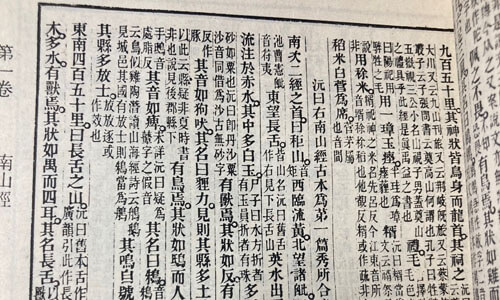
Why Choose Us
More
At Jinyu Translation, we recognize the invaluable advantage of having native Chinese speakers as an integral part of our translation team. With native speakers proficient in traditional Chinese, we ensure that our translations are not only linguistically accurate but also culturally authentic. This proficiency allows us to capture subtle nuances, idiomatic expressions, and cultural references that may be lost in non-native translations, thus enhancing the overall quality and effectiveness of our work.
Moreover, being native speakers enables us to work with unmatched efficiency. Our translators have an innate understanding of the language, allowing them to translate swiftly without compromising accuracy. This efficiency is particularly beneficial for clients with tight deadlines or large-scale projects, as it ensures timely delivery without sacrificing quality. By leveraging our native expertise, we streamline the translation process, providing our clients with prompt and reliable services that meet their expectations.
In addition to delivering high-quality translations efficiently, our native Chinese speakers offer a cost-effective solution for our clients. With a deep understanding of the language and cultural nuances, we minimize the need for extensive revisions or corrections, thereby reducing overall project costs. By investing in native talent, we provide our clients with exceptional value for their investment, enabling them to achieve their communication objectives while staying within budget constraints. At Jinyu Translation, our commitment to excellence and cost-effectiveness makes us the preferred choice for traditional Chinese translation services.
More
Jinyu Translation stands out in delivering perfect work through a combination of extensive industry experience, advanced tools, and unwavering commitment to exceptional service. Our team comprises seasoned professionals with in-depth industry knowledge, allowing us to understand the nuances of various sectors. This experience enables us to provide translations that not only accurately convey the message but also align with industry-specific terminology, ensuring a perfect representation of our clients’ content in traditional Chinese.
To further enhance the precision and efficiency of our translations, we leverage Computer-Assisted Translation (CAT) tools and implement rigorous proofreading processes. CAT tools assist our translators in maintaining consistency across projects, managing terminology, and increasing overall efficiency. Paired with meticulous proofreading by our skilled language experts, this ensures that every translation undergoes thorough scrutiny, resulting in polished and error-free content that meets the highest standards of accuracy.
Our commitment to perfection extends beyond the translation process to encompass exceptional customer service. We prioritize clear communication, responsiveness, and a client-centric approach. By understanding the unique requirements of each project and maintaining open lines of communication, we ensure that our clients are not only satisfied but also confident in the flawless execution of their translation projects. At Jinyu Translation, our perfect work is a reflection of our dedication to excellence, industry expertise, and unwavering commitment to delivering top-notch traditional Chinese translation services.
More
Jinyu Translation takes pride in offering a comprehensive and reliable global delivery service, ensuring our clients receive their translated content with utmost convenience and efficiency. Leveraging online delivery platforms, we provide a seamless experience for clients to access their translated materials from anywhere in the world. Our secure and user-friendly online delivery system enables swift and hassle-free access to the finalized translations, promoting efficiency and convenience for our global clientele.
In addition to our online delivery services, Jinyu Translation extends its commitment to convenience by offering reliable parcel delivery options. For clients who prefer physical copies or require hard copies of their translated documents, we facilitate timely and secure parcel deliveries. Our robust logistics network ensures that the translated materials are packaged securely and dispatched promptly, reaching our clients’ doorstep with the same level of accuracy and care that characterizes our translation services.
To further instill confidence in our global delivery service, Jinyu Translation provides a robust warranty for all delivered content. This warranty assures clients of the quality, accuracy, and confidentiality of their translated materials. In the rare instance of any concerns or issues, our warranty guarantees prompt resolution, reinforcing our commitment to client satisfaction and the seamless global delivery of our traditional Chinese translation services.
Traditional Chinese Translation Services Insights
1. Difference between Traditional Chinese and Simplified Chinese
Traditional Chinese and Simplified Chinese are two writing systems used for the Chinese language, each with distinct characteristics and historical contexts. The primary differences lie in their visual complexity, usage, and regions of prevalence.
- Visual Complexity: The most apparent difference is the visual complexity of the characters. Traditional Chinese characters tend to be more intricate and detailed, featuring a larger number of strokes. Simplified Chinese, as the name suggests, simplifies many characters by reducing the number of strokes, making them more straightforward and easier to write.
- Historical Context: Traditional Chinese characters have a longer historical lineage and were widely used before the reform initiated in the mid-20th century. The simplification of characters was introduced in the People’s Republic of China as part of a language reform effort to improve literacy rates. Simplified Chinese characters are predominantly used in Mainland China, Singapore, and Malaysia, while Traditional Chinese is more common in Hong Kong, Macau, Taiwan, and among overseas Chinese communities.
more
- Usage and Geographic Distribution: Traditional Chinese characters are still widely used in regions that have not adopted the simplified script. Taiwan, Hong Kong, and Macau continue to use Traditional Chinese in official documents, education, and daily communication. On the other hand, Simplified Chinese is the standard script in Mainland China, and its adoption has facilitated increased literacy rates due to its simplified nature.
While the choice between Traditional and Simplified Chinese often depends on regional conventions and historical influences, both writing systems serve the same underlying language. Translators and businesses seeking to engage Chinese-speaking audiences should carefully consider the target region and audience preferences to ensure effective communication.
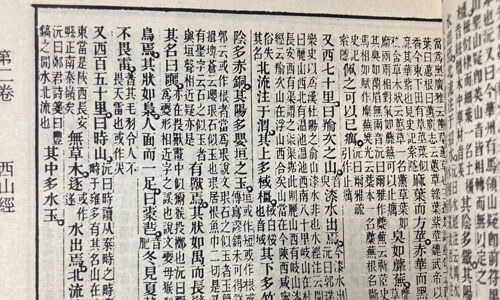
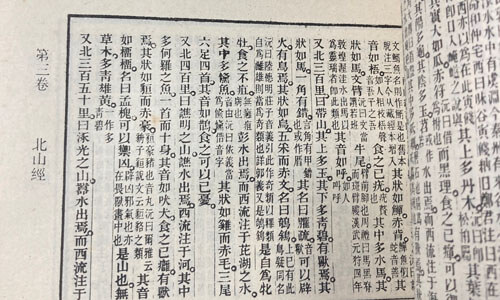
2. Business Scope of Jinyu’s Traditional Chinese Translation
Jinyu Translation’s Traditional Chinese translation services cater to a diverse range of business needs, ensuring effective communication with audiences in regions where Traditional Chinese is the predominant script. Our business scope encompasses various industries and document types, delivering accurate and culturally appropriate translations to meet the following needs:
- Legal Documents: We provide precise translations for legal documents such as contracts, agreements, court documents, patents, and certificates, ensuring that the integrity and legal nuances of the content are maintained in Traditional Chinese.
- Marketing and Advertising: Our translation services extend to marketing materials, advertisements, product descriptions, and promotional content, ensuring that businesses effectively convey their messages to Traditional Chinese-speaking audiences while considering cultural nuances.
- Technical and Scientific Documents: Jinyu Translation specializes in translating technical and scientific documents, including manuals, specifications, and research papers. Our team ensures that complex technical terminology is accurately conveyed in Traditional Chinese, maintaining clarity and precision.
- Website Localization: We assist businesses in localizing their websites for Traditional Chinese-speaking markets. This includes translating website content, adapting graphics, and ensuring a culturally relevant and user-friendly online experience.
more
- Financial and Business Documents: Our translation services cover financial reports, business plans, and other corporate documents. We maintain accuracy and confidentiality while providing clear and culturally suitable translations for Traditional Chinese audiences.
- Medical and Healthcare: Jinyu Translation is equipped to handle medical and healthcare documents, including patient records, pharmaceutical information, and research papers. Our translations adhere to industry-specific terminology and ensure clear communication in Traditional Chinese.
- Educational Materials: We offer translation services for educational materials, including textbooks, course materials, and academic papers. Our team ensures that educational content is accurately conveyed in Traditional Chinese for students and educators.
- E-commerce and Retail: For businesses operating in e-commerce and retail sectors, we provide translations for product descriptions, e-commerce platforms, and marketing materials to help them effectively reach Traditional Chinese-speaking consumers.
- Government and Public Sector: Jinyu Translation supports government and public sector organizations in translating official documents, public communications, and regulatory materials to ensure accurate and culturally relevant information dissemination in Traditional Chinese.
By offering a comprehensive range of Traditional Chinese translation services, Jinyu Translation empowers businesses to engage with diverse audiences, enhance global communication, and thrive in markets where Traditional Chinese is the preferred script.
3. Traditional Chinese Translation Skills
Mastering traditional Chinese translation requires a combination of linguistic proficiency, cultural understanding, and attention to detail. Here are key skills that contribute to effective traditional Chinese translation:
- Fluency in Both Languages: A translator must be highly proficient in both the source language (usually English) and traditional Chinese. This includes a deep understanding of grammar, syntax, and vocabulary in both languages.
- Cultural Competence: Cultural nuances play a crucial role in translation. A skilled traditional Chinese translator should have a deep understanding of Chinese culture, history, customs, and idioms to ensure accurate and culturally appropriate translations.
- Subject Matter Expertise: Depending on the industry, a translator should have subject matter expertise. This is particularly important for technical, legal, medical, or specialized content where domain-specific terminology requires precision and accuracy.
- Research Skills: Translators often encounter terms or concepts that may not have direct equivalents in the target language. Strong research skills are essential to ensure accurate and contextually appropriate translations.
- Attention to Detail: Translators must pay meticulous attention to detail, including grammar, punctuation, and formatting. Even minor errors can impact the clarity and professionalism of the translated content.
- Time Management: Meeting deadlines is crucial in the translation industry. Effective time management skills help translators deliver quality work within specified timelines.
more
- Adaptability: Language is dynamic, and a skilled translator must be adaptable. This includes staying updated on language trends, new vocabulary, and changes in linguistic conventions.
- Computer-Assisted Translation (CAT) Tools: Proficiency in using CAT tools, such as translation memory software, is essential for efficiency and consistency in large-scale projects. These tools aid in maintaining a consistent terminology database and improving overall translation quality.
- Proofreading and Editing: A translator should possess strong proofreading and editing skills to review and refine their own work. This ensures the final translation is polished and free from errors.
- Communication Skills: Effective communication is key, especially when working with clients, revising drafts, or clarifying ambiguities. Clear communication ensures that the translator accurately understands the client’s requirements.
- Ethical Conduct: Translators often deal with sensitive or confidential information. Ethical conduct, including maintaining client confidentiality and integrity, is crucial to build trust with clients.
- Continuous Learning: Language evolves, and staying informed about changes in linguistic conventions, new terminology, and industry trends is vital. Continuous learning helps translators remain at the forefront of their profession.
By honing these skills, traditional Chinese translators can deliver high-quality and culturally relevant translations that meet the diverse needs of clients across various industries.
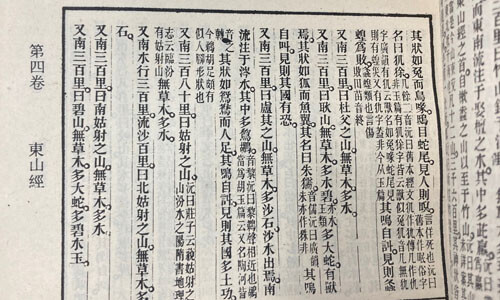
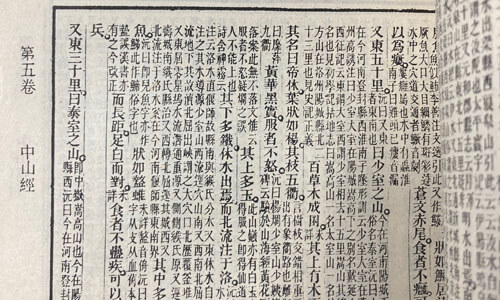
4. Traditional Chinese Translation Price Plans
Traditional Chinese translation price plans can vary based on factors such as the complexity of the content, the volume of words, and the specific requirements of the project. Here are common pricing models used in the traditional Chinese translation industry:
- Per Word Pricing: This is a common pricing model where clients are charged based on the number of words in the source document. The rate per word can vary depending on factors such as the difficulty of the content, subject matter expertise required, and the volume of the document.
- Hourly Rate: Some traditional Chinese translators charge clients based on an hourly rate. This model is often used for projects that involve extensive research, adaptation of complex terminology, or tasks beyond straightforward translation.
- Fixed Project Rate: For well-defined projects with clear scope and requirements, translators may provide a fixed project rate. This allows clients to have a set cost for the entire translation project, providing predictability in terms of budget.
- Per Page Pricing: In certain cases, especially for printed materials or documents where the concept of a “page” is more relevant than word count, translators may offer per-page pricing. This can be suitable for documents like brochures, marketing materials, or legal contracts.
more
- Minimum Fee: Translators may have a minimum fee to cover the administrative and operational costs associated with taking on a project. This ensures that even smaller projects are financially viable for the translator.
- Volume Discounts: Clients with large or ongoing translation needs may negotiate volume discounts. This could involve reduced rates for a higher volume of words or a long-term contract arrangement.
- Rush Fees: Translators may charge an additional fee for projects that require expedited turnaround times or weekend work. This compensates for the translator’s need to prioritize the urgent project over other assignments.
- Additional Services: Some translators offer additional services such as proofreading, editing, or desktop publishing. The pricing for these services may be separate from the base translation rate.
It’s important for clients to discuss their specific requirements, deadlines, and expectations with us to determine the most appropriate pricing model.
5. Traditional Chinese Translation Procedures
The traditional Chinese translation process involves several key steps to ensure accurate, culturally appropriate, and high-quality translations. Here are the typical procedures followed by Jinyu Translation:
- Project Assessment: The translation process begins with a thorough assessment of the project. This involves understanding the client’s requirements, determining the scope of work, and identifying any specific challenges or nuances associated with the content.
- Quotation and Agreement: Jinyu Translation provides clients with a detailed quotation based on the project assessment. The quotation includes pricing, timelines, and any additional services required. Once the client agrees to the terms, a formal agreement is established.
- Assignment to Translators: After receiving client approval, the project is assigned to a team of skilled traditional Chinese translators with expertise in the subject matter. The team may include native speakers to ensure linguistic accuracy and cultural appropriateness.
- Translation Phase: The translators begin the translation process, converting the content from the source language (e.g., English) to traditional Chinese. They consider the context, tone, and specific terminology relevant to the target audience.
more
- Quality Assurance: Quality assurance is a crucial step. Translated content undergoes a thorough review and proofreading process to ensure accuracy, consistency, and adherence to the client’s requirements. This step may involve multiple rounds of review.
- Client Review and Feedback: Jinyu Translation values client feedback. The translated content is shared with the client for review, and any requested revisions or adjustments are implemented promptly. This iterative process ensures client satisfaction.
- Finalization: Once all revisions are complete and the client approves the final version, the translated content is finalized. The traditional Chinese translation is prepared for delivery in the agreed-upon format, whether digital or hard copy.
- Delivery: Jinyu Translation delivers the translated content to the client according to the agreed-upon method, whether online or via physical delivery. For online delivery, clients may access the translated materials through secure platforms.
- Follow-Up: Jinyu Translation maintains open lines of communication with clients to address any post-delivery queries or additional needs. This ensures ongoing support and client satisfaction.
Throughout each phase, Jinyu Translation places a strong emphasis on communication, transparency, and collaboration to deliver traditional Chinese translations that meet the highest standards. The procedures are tailored to the unique requirements of each project, ensuring a personalized and effective translation experience for clients.
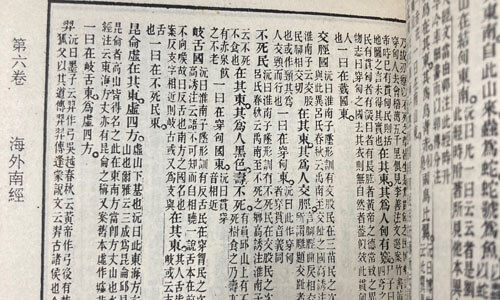
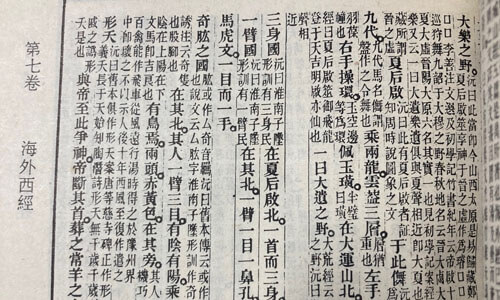
6. Translation Example Sentences
Here are some Jinyu’s example sentences translated from English to Traditional Chinese:
In the realm of modern business, effective communication across linguistic and cultural boundaries is imperative for building successful international partnerships and expanding market reach.
The enchanting beauty of nature, with its diverse landscapes and ecosystems, reminds us of the importance of environmental conservation and sustainable practices for the well-being of our planet.
more
Exploring the rich history and cultural heritage of ancient civilizations can provide profound insights into the complexities of human development over the centuries.
As the world becomes more interconnected, fostering global collaboration and understanding among diverse communities is essential for addressing the challenges and opportunities of the 21st century.
Nurturing creativity and innovation within educational environments is paramount for preparing the next generation of thinkers and problem solvers who will contribute to the ever-evolving landscape of science and technology.
7. Case Study: Bridging Markets with Precision
- Client – XYZ Corporation: XYZ Corporation, a global tech giant, enlisted Jinyu Translation’s expertise to enter the Chinese market seamlessly. Facing the challenge of conveying intricate tech concepts to a Chinese audience, XYZ Corporation sought precision and cultural relevance in their translations.
- Challenge: The complexity of technical terminology and the need for cultural adaptation presented hurdles in XYZ Corporation’s market entry strategy.
- Jinyu Translation Solution: Leveraging a team of native Chinese translators with tech proficiency, Jinyu Translation meticulously translated software interfaces, user guides, and marketing materials. The team ensured cultural resonance and consistency through CAT tools, collaborating closely with XYZ Corporation for real-time adjustments.
more
- Result – Successful Market Entry: Jinyu Translation’s precise translations facilitated XYZ Corporation’s successful product launch in China, resonating with the target audience.
- Result – Enhanced User Experience: Translated software interfaces improved user engagement and satisfaction, contributing to a smoother customer experience.
- Result – Market Expansion: XYZ Corporation achieved substantial market growth, establishing a robust presence and setting the stage for future expansion in the region.
Jinyu Translation’s strategic approach broke language barriers, enabling XYZ Corporation to connect with the Chinese market effectively. Through technical expertise, cultural sensitivity, and agile communication, Jinyu Translation played a key role in XYZ Corporation’s triumphant entry and growth in the Chinese market.
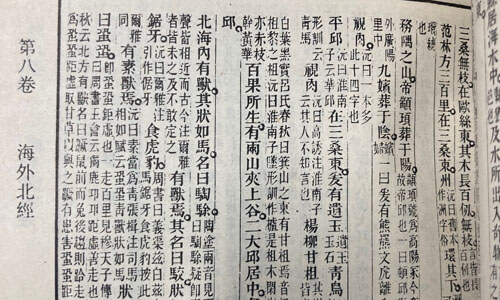
FAQ
Here are ten frequently asked questions (FAQs) about our traditional Chinese translation services:
1. Q: What languages do you specialize in for translation?
A: Jinyu Translation specializes in English to Chinese and Chinese to English translation services, covering both simplified and traditional Chinese.
2. Q: How experienced are your translators?
A: Our team consists of highly experienced translators with expertise in various industries. Many are subject matter specialists, ensuring accurate and contextually relevant translations.
3. Q: Can you handle urgent translation requests?
A: Yes, we offer expedited services for urgent translation needs. Contact our team, and we’ll work to accommodate your timeline.
4. Q: What types of documents do you translate?
A: We provide translation services for a wide range of documents, including legal documents, marketing materials, websites, medical documents, and more.
5. Q: Do you offer localization services for websites and marketing materials?
A: Absolutely. Our team excels in website localization, adapting content to resonate with the target audience culturally and linguistically.
6. Q: What industries do you specialize in for translation?
A: Jinyu Translation has expertise across various industries, including technology, healthcare, legal, marketing, and more. Our diverse team ensures accurate industry-specific translations.
7. Q: How do you ensure quality control in your translations?
A: Our quality control measures include multiple rounds of review, proofreading, and collaboration with clients for feedback. We aim for linguistic accuracy and cultural appropriateness.
8. Q: Can you provide notarized translations for legal documents?
A: Yes, we can arrange for notarized translations when required. Our team understands the legal nuances involved in translating official documents.
9. Q: What file formats do you support for translation?
A: We support a wide range of file formats, including Word, PDF, HTML, XML, and more. Our goal is to accommodate your specific needs and deliver translations in the desired format.
10. Q: How do you handle confidential information in documents?
A: Client confidentiality is a priority. We have robust privacy measures in place, and our translators adhere to strict confidentiality agreements. Your sensitive information is secure with us.
Feel free to reach out to our team for any specific queries or customized translation requests!
